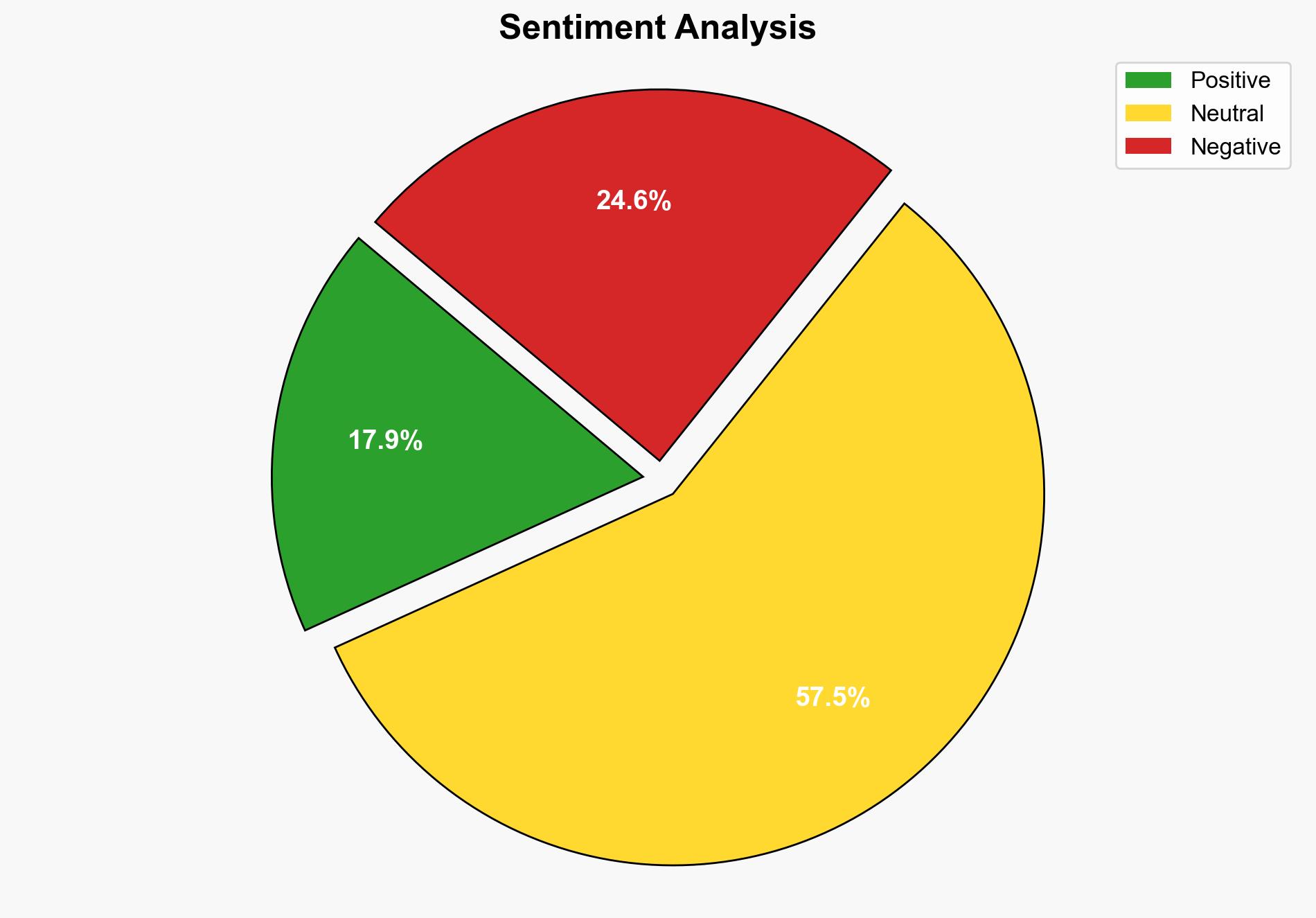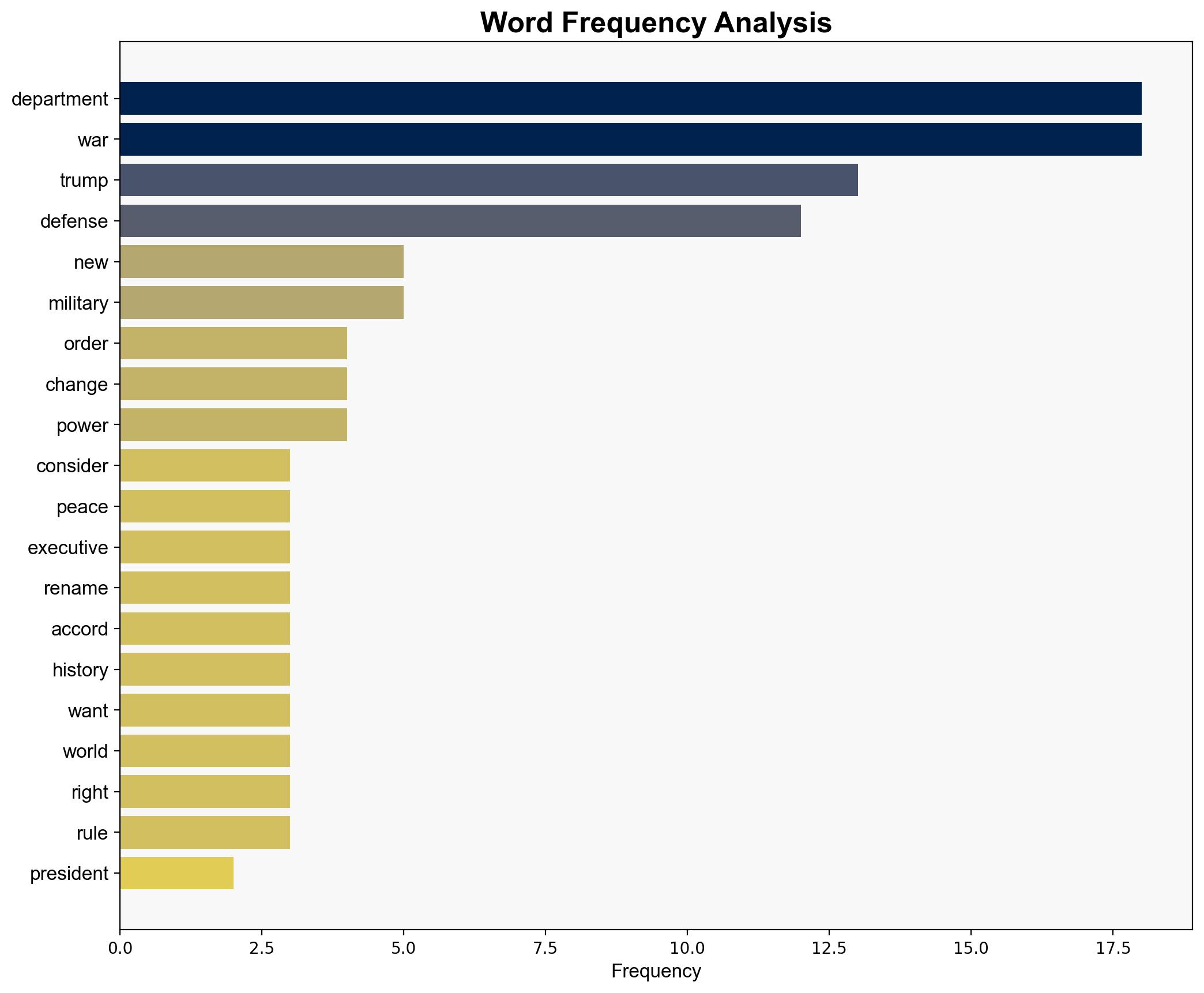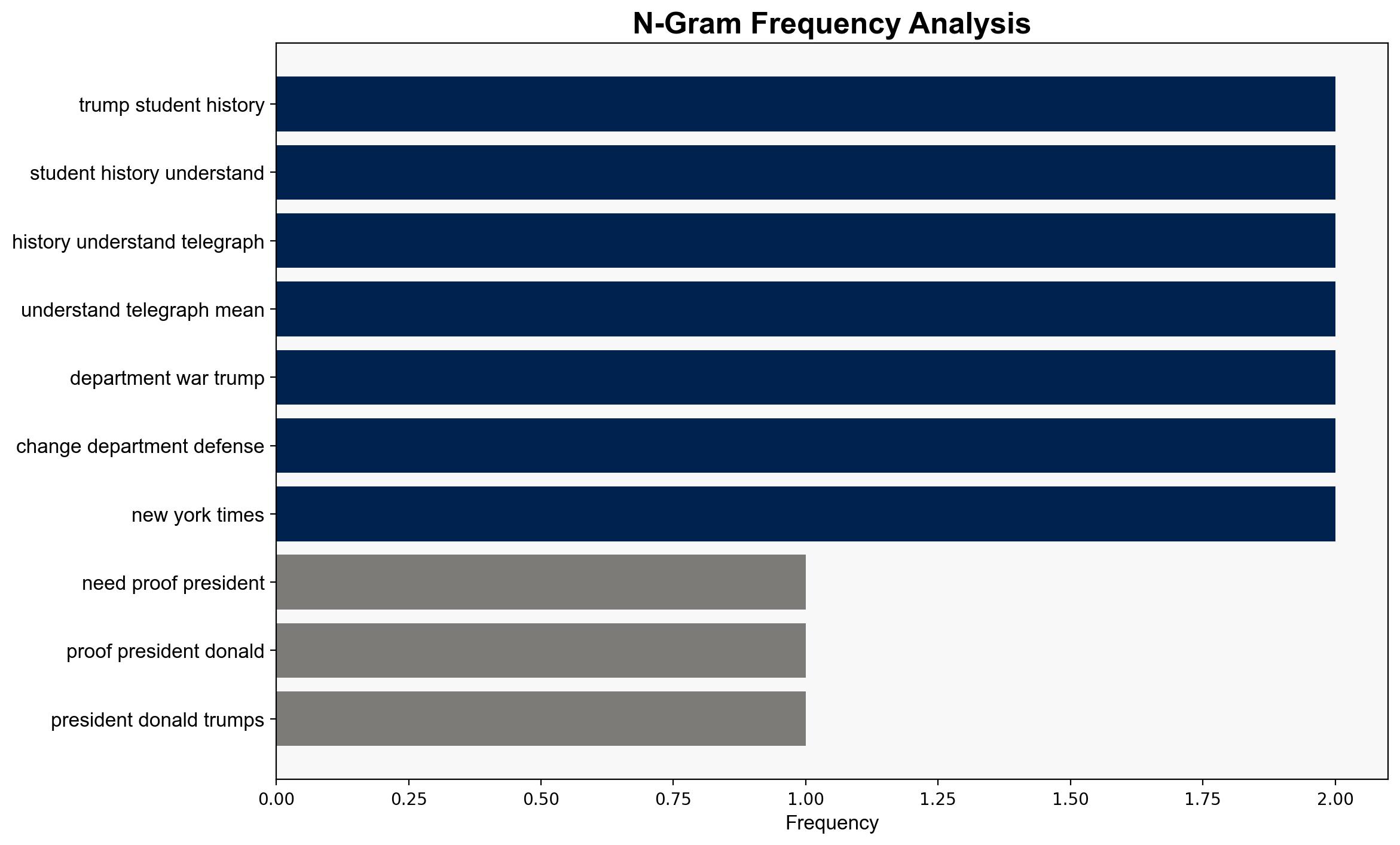Trump’s ‘Department of War’ launch is more than just a shallow rebrand – MSNBC
Published on: 2025-09-06
Intelligence Report: Trump’s ‘Department of War’ launch is more than just a shallow rebrand – MSNBC
1. BLUF (Bottom Line Up Front)
The most supported hypothesis is that the rebranding of the Department of Defense to the “Department of War” reflects a strategic shift towards a more aggressive military posture. This is supported by historical context and Trump’s rhetoric. Confidence level: Moderate. Recommended action: Monitor legislative developments and international reactions to anticipate shifts in U.S. military policy.
2. Competing Hypotheses
1. **Hypothesis A**: The rebranding is primarily symbolic, aiming to appeal to Trump’s political base by evoking a historical ethos of American military strength without substantial policy changes.
2. **Hypothesis B**: The rebranding signals a genuine strategic shift towards a more offensive military posture, potentially altering U.S. foreign policy and military engagement rules.
Using the Analysis of Competing Hypotheses (ACH) 2.0, Hypothesis B is better supported due to Trump’s historical statements and actions that align with an aggressive military stance, such as his comments on offensive military strategies and previous foreign policy decisions.
3. Key Assumptions and Red Flags
– **Assumptions**: Hypothesis A assumes Trump’s actions are primarily politically motivated without intent for policy change. Hypothesis B assumes Trump’s rhetoric will translate into actionable policy shifts.
– **Red Flags**: Lack of explicit legislative support for a full rebranding suggests potential barriers to implementation. The absence of clear military or strategic objectives accompanying the rebranding raises questions about the depth of the policy shift.
4. Implications and Strategic Risks
– **Geopolitical Risks**: A shift to a more aggressive military posture could escalate tensions with adversaries, particularly in regions like the Middle East and East Asia.
– **Economic Risks**: Increased military spending and potential conflicts could strain the U.S. economy.
– **Cybersecurity Risks**: An aggressive stance may provoke cyber retaliation from adversaries.
– **Psychological Risks**: Domestic and international perception of U.S. militarism could impact diplomatic relations and global standing.
5. Recommendations and Outlook
- Monitor congressional actions and public statements for indications of policy shifts.
- Engage with international allies to gauge their reactions and prepare for potential diplomatic fallout.
- Scenario Projections:
- Best Case: The rebranding remains symbolic, with no significant policy changes.
- Worst Case: The U.S. engages in new military conflicts, straining international relations and the economy.
- Most Likely: Incremental policy shifts towards a more assertive military posture, with mixed international reactions.
6. Key Individuals and Entities
– Donald Trump
– Pete Hegseth
– David Sanger
7. Thematic Tags
national security threats, geopolitical strategy, military policy, U.S. foreign relations





